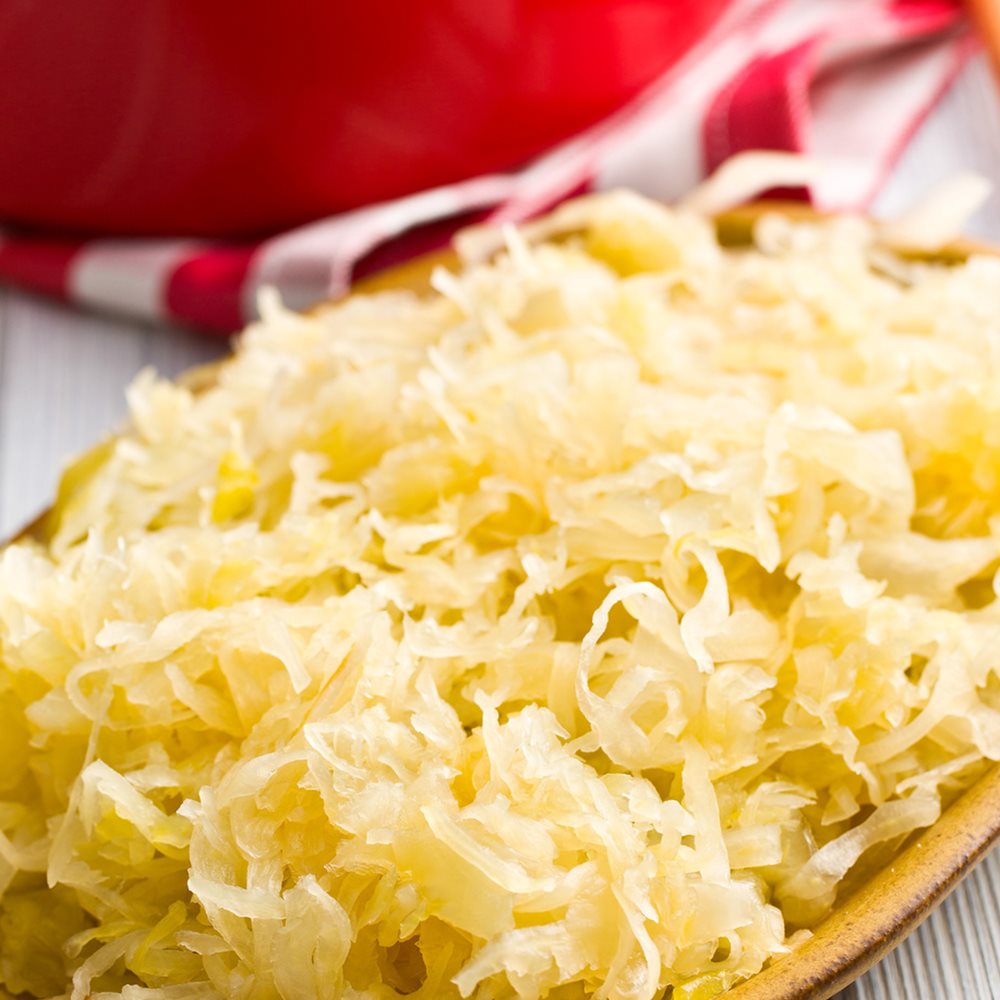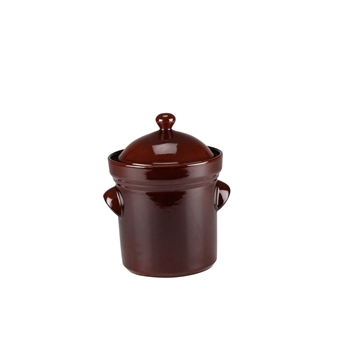More vitamin-packed and easier to digest than fresh produce, lacto-fermented products play a major role in the body´s balance.
"Lacto-fermentation is the only conservation process that increases the nutritional quality of the food. While cold, dehydration or sterilisation kill off some of the vitamins, lacto-fermentation manufactures some!
The surprising properties of a method of preservation that has been known for at least 6000 years are today being rediscovered! And it´s about time. There is no need to heat the food to sterilise it nor to freeze it. All you need is a jar, a little salt and a little water to make a genuine miracle.
The principle of lacto-fermentation consists of encouraging the growth of ""good"" bacteria that are naturally present in the foodstuff, and to eliminate the ""bad"" ones that are responsible for rotting. Not only do the good lactic bacteria have the capacity to synthesis vitamins (C, PP, B12, K ...) or to allow their assimilation by the body, they also produce lactic acid. Now this lactic acid is the best way to combat the pathogenic agents that rapidly make food unfit for consumption.
Once the food has been lightly salted and covered with water, the lactic bacteria are protected, because like vitamins air destroys them. They feed on sugars, and at clement temperatures they multiply quickly enough to occupy the area to the detriment of undesirable organisms.
What is even more surprising is that once the preserve has become sufficiently rich in lactic acid, the fermentation agents are inhibited. The milieu is auto-regulated and even if the preserve is older, it will not be more acidic. The product becomes stable. This little touch of acidity can be found in yoghurt, in dried sausage or in sauerkraut.
Easier to digest
The lactobacillae transform the starch that we cannot assimilate into digestible sugars. They also partially decompose fats into fatty acids, proteins onto amino acids and break down fibres, which retain their beneficial features but are less aggressive on delicate intestines. On one hand, lacto-fermented food is richer in vitamins and nutrients that are can be directly assimilated, but because the lactobacillae have already done most of the work, we spend less energy digesting.
The use of lactic fermenting agents is not limited to lacto-fermented preserves. Every day we eat bread, saucisson, yoghurt and other processed products that use lactic fermentation in their development process.
Lactose intolerant?
There is no relationship between milk and lactic bacteria. The term ""lactic"" simply means that these fermenting agents have the capaciity to produce lactic acid. In their natural state, these fermenting agents can be found in the soil or in vegetables, and they also play an important part in our digestive system. Our mouth, stomach, and particularly intestine are colonised by lactic bacteria that are an integral part of our intestinal flora. The risk of confusion occurs because we also use these lactic fermenting agents to conserve milk, in the form of yoghurts for example. If you are lactose intolerant, there is no danger in enjoying some sauerkraut or any other lacto-fermented product that does not have a milk base.
With regards to food intolerance, the action of the lactic fermenting agents can also be beneficial. Some among us have trouble digesting lactose, which is a milk sugar, but have no problem absorbing yoghurt. This deserves an explanation: during milk fermentation, the fermenting agents feed on the lactose and transform it into lactic acid. Because lactic acid has a positive effect on the digestive process, it is a win-win situation.
What about the body?
The consumption of lacto-fermented foods that are easier to digest and richer in vitamins also has a balancing action on the body. In the same way as in a preserve, the lactic bacteria protect the intestine from pathogenic agents. The flora remains balanced and vitamins B and K are better synthesized.
Many studies have demonstrated the beneficial effects of lacto-fermented products and the vital importance for the body to have intestinal lactic flora that is balanced, in particular in terms of the immune system. While scientific demonstration are not also to the taste of the non-initiated, history on the other hand can be very convincing. Up until the 18th century, sailors, who were deprived of fresh produce, were literally decimated by scurvy generated by several lack of vitamin C. At the time, the loss of up to 30% of numbers on board per navigational year in tropical areas was considered to be ""normal""! The famous English explorer and cartographer James Cook, who spent three years exploring the South Pacific, had no losses among his crew. He did, however, have 60 barrels of sauerkraut on board.
It´s worth thinking about....
"







































